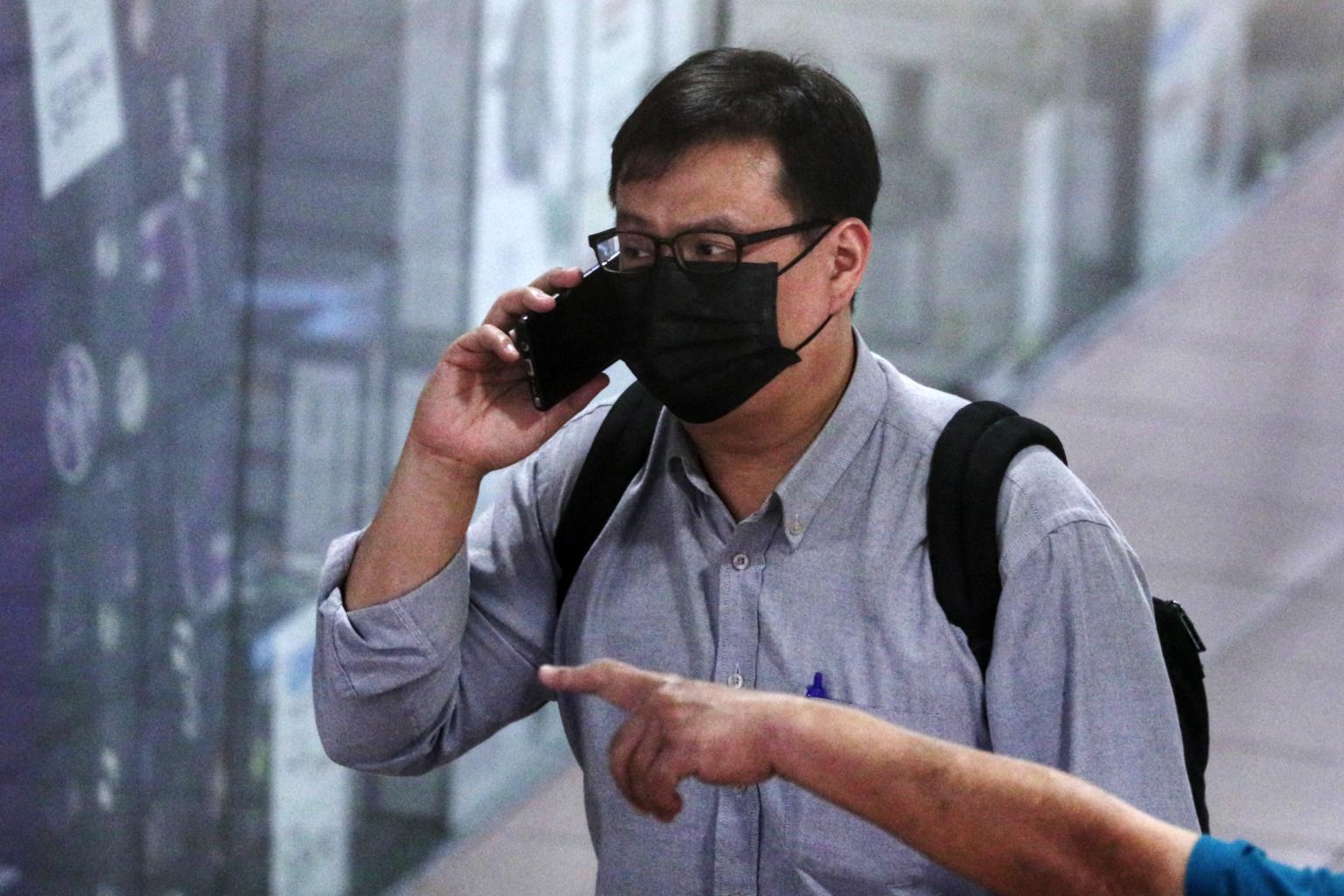Lab exec cheated NUS to help repay loans granted by friends at exorbitant interest rates
Sign up now: Get ST's newsletters delivered to your inbox

Liaw Jinle leaving the State Courts on Sept 20, 2021.
ST PHOTO: KELVIN CHNG
Follow topic:
SINGAPORE - To fund his wedding, credit card bills and renovation works for his future in-laws, a laboratory executive at National University of Singapore (NUS) borrowed money from his friends at exorbitant interest rates.
When Liaw Jinle, 34, was unable to keep up with repayments, one of the friends he borrowed from, Sandy Tan Wei Jie, 33, told Liaw that he would stop demanding repayment if Liaw helped Tan's companies get contracts from NUS.
These were for the supply of goods and services to the university.
From March to December 2019, Tan's companies were awarded 31 jobs from NUS, valued at $136,772.52.
Both men were found guilty of cheating and corruption on Thursday (March 31).
Liaw, who is no longer employed by NUS, was in tears as he was sentenced to 20 months and two weeks' imprisonment for two charges each of cheating and corruption.
He began serving his sentence on Thursday.
Tan, who was convicted of one count of cheating and corruption, had his sentencing adjourned to allow him time to make restitution to NUS.
Liaw was also convicted of helping Gan Yee Aun, 35, another friend he borrowed money from, cheat NUS of more than $150,400.
Gan's case is still before the courts.
The court heard that in 2016, Liaw borrowed money from Gan. The loans included a 20 per cent "administrative fee", an interest rate of 20 per cent, and late payment fees of $100 a day.
One of the loans was for $10,000, which Liaw used to pay off his credit card bills.
To pay off his loan to Gan, Liaw also borrowed $3,000 from Tan some time in 2017, with a 25 per cent administrative fee, an interest rate of 20 per cent, and late payment fees of $200 a day should the loan not be repaid in three months.
In 2017, Liaw told Gan about his role at NUS's Centre for Advanced 2D Materials and shared his idea of setting up a company to direct jobs from NUS to the company, to earn the profit from these jobs.
He said he could not register the company under his name as he was an employee of NUS.
Gan agreed to the idea and incorporated two companies, and later set up and took over two more companies to avoid suspicion from NUS.
Liaw told Gan to avoid putting his real name on all documents sent to NUS by Gan's entities to avoid detection and told him what job or product description should be listed in quotations or invoices to NUS.
From November 2017 to February 2020, Gan's entities were awarded a total of 60 jobs from NUS, valued at $150,400.60. These included the procurement of "chemical spill response kit sets" and "chemical transport trolleys".
A portion of the profits from their ruse went towards paying off Liaw's loan.
Liaw engaged in a similar conspiracy with Tan. He told Tan how much to quote for jobs, the market rates for jobs, and helped Tan source items and contractors.
Tan earned about $81,200 from the conspiracy.
All three men did not keep records of how much of Liaw's loan to Tan and Gan were offset.
Liaw's lawyer, Mr Jeremy Pereira, told the court it was very telling that Tan and Gan did not calculate the outstanding balance of the loans as this was meant to keep Liaw in debt.
He added that his client "never got a single dollar" from the ruse.
Mr Pereira also argued that NUS received about 80 per cent of the goods and services it had requested in the quotes.
However, Deputy Public Prosecutor Victoria Ting countered that NUS was not able to get competitive prices because of the ruse.
District Judge Ronald Gwee noted that it was remarkable that Liaw did not make a police report in relation to the loans from his friends.
The judge said that a deterrent sentence would send a message to others who found themselves in a similar situation, and push them to go to the authorities instead of "compounding the situation and making it worse".

